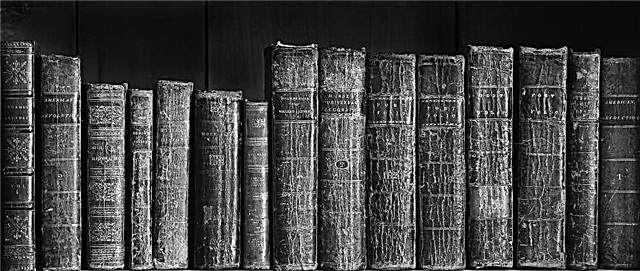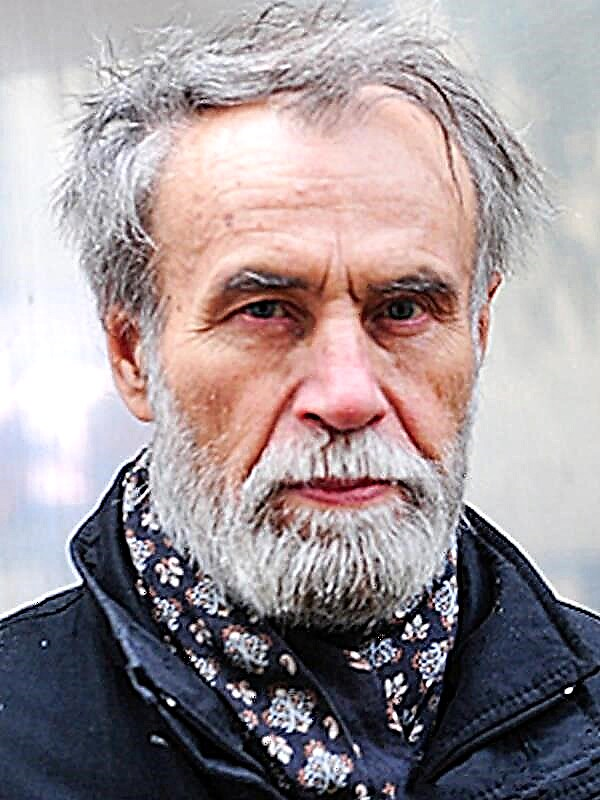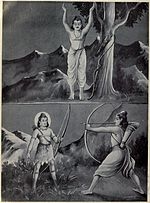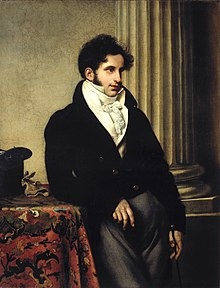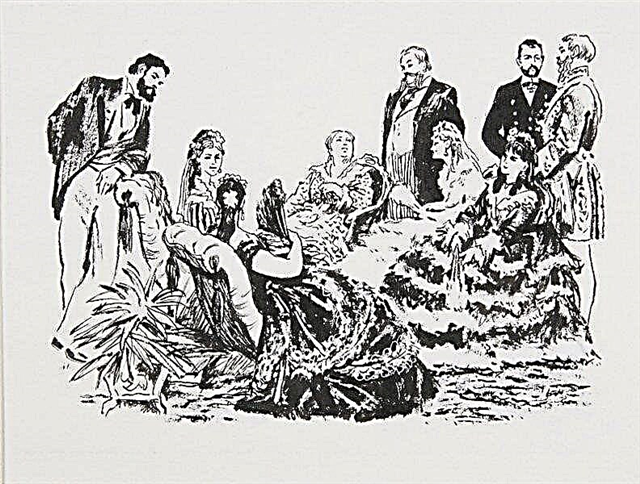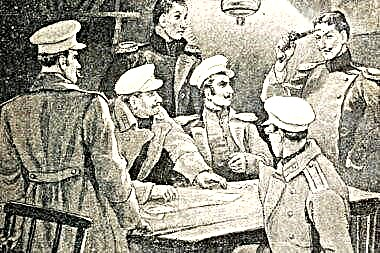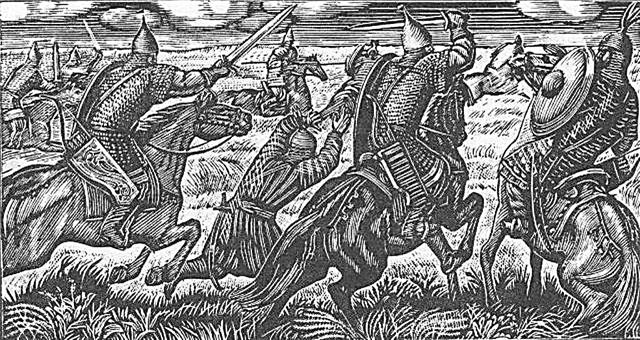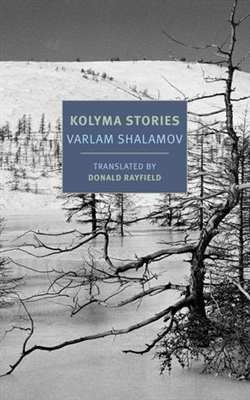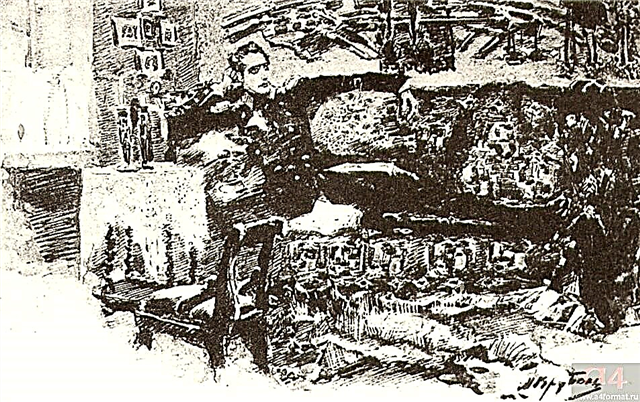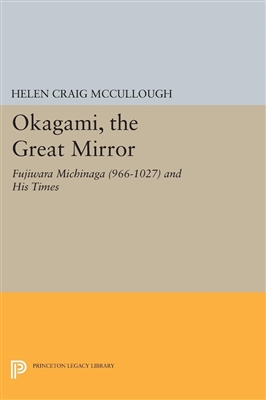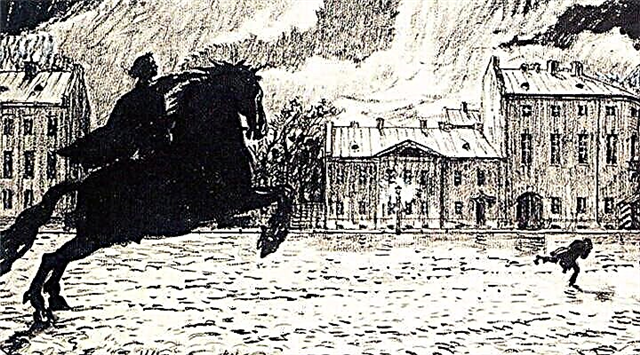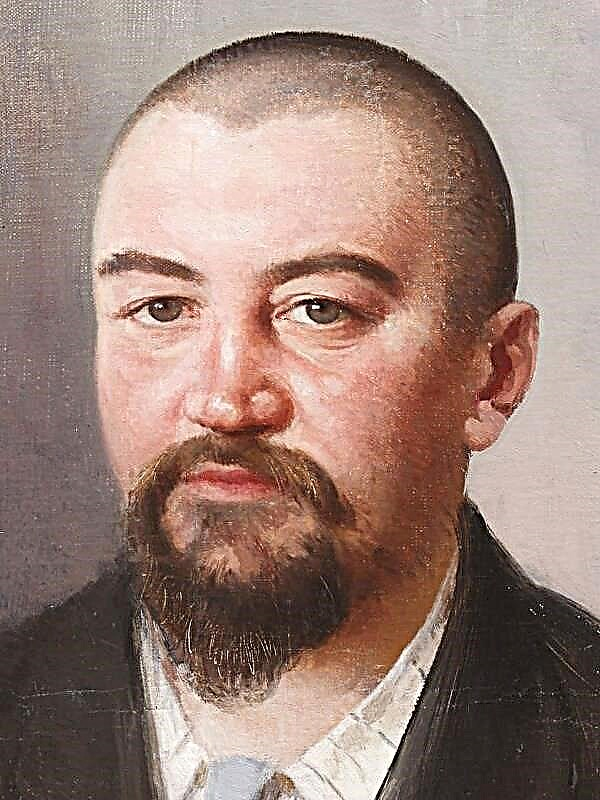The novel is preceded by two epigraphs. The first (to the whole novel) is taken from the book "Being reasonable, or Moral view of the dignity of life." “Every minute swears in fate to maintain a deep silence about our lot, even until that time, when it unites with the course of life, and then when the future is silent about our fate, every passing minute can begin forever.” The second epigraph (to the “Introduction”) is taken from A. Blok: “Deaf born in years, / Ways do not remember their own. / We, children of the terrible years of Russia, / Forget nothing. ”
However, memory is absurd and meaningless. This is how compositionally the memories of the first revolutionary years (the “new civilization”) appear, in constant comparison with a thousand-year history, with antiquity, amenable to reforging. In the canonized merchant city of Ordynin, for example, trader Ivan Emelyanovich Ratchin lives, “in whose house (behind the wolfhounds at the stone deaf gates) is always silent. Only in the evenings from the basement, where the clerks with the boys live, is the repressed singing of psalms and akathists heard. "At home, the clerks take away jackets and boots, and the boys have trousers (so as not to shaman at night)." Once upon a time, the son of Ivan Emelyanovich, Donat, leaves this house for the first world war. After seeing the world and once obeying the Communists meekly, on his return, of course, he wants to change everything in the sleepy kingdom and, for starters, gives his father the house of the Red Guard. Donatus is pleased with all the changes in the Horde, any destruction of the old. In the forests that sprawl around the city, red roosters of lordly estates light up. Without tired, at least a quarter of the force, changing owners, Taiga factories work, where the railway has long been built. "The first train that stopped in Ordynin was a revolutionary train."
The face of the city and the current life of the old princely family of the Ordynins determine it. “A large house, assembled for centuries, which has become a three-seated foundation, as on three pillars, in one year’s flight, fell, fell. However, the Cain seal was printed a long time ago. ” Prince Evgraf and Princess Elena, their children Boris, Gleb, and Natalya became entangled in the maelstroms of their own destinies, which their own Russia dragged on even further, to hopelessness. Some of them drink, some cry, some confess. The head of the house dies, and one of the daughters is drawn to a new life, that is, to the Communists. Iron will, wealth, family, as such, are exhausted and crumble like sand. “Those of the Ordynins, who are able to think, are inclined to believe that the path of Russia, of course, is special. “Europe was pulling Russia in its direction, but it led to a dead end, hence the craving of the Russian people for rebellion ... Look at peasant history: like a forest millennium path, wastelands, mends, graveyards, millennium fallows. A state without a state, but growing like a mushroom. Well, the faith will be peasant ... And Orthodox Christianity came with the kings, with someone else’s power, and the people from him went into sectarianism, to the healers, wherever you want. On Yaik - from the authorities. Well, detectives, so that in fairy tales about Orthodoxy there would be? - Leshas, witches, watermen, not the LORD of hosts at all. ”
Heroes involved in archaeological excavations often discuss Russian history and culture. “Our greatest masters,” says quietly Gleb, “who are higher than da Vinca, Correggio, Perugino, are Andrei Rublev, Prokopy Chirin and those nameless that are scattered in Novgorod, Pskov, Suzdal, Kolomna, in our monasteries and churches. What art they had, what skill! How they solved the most difficult tasks. Art must be heroic. Artist, master devotee. And you have to choose for your work - majestic and beautiful. What is greater than Christ and the Mother of God? - especially the Mother of God. Our old masters interpreted the image of the Mother of God as the sweetest secret, the spiritual secret of motherhood - in general motherhood. "
However, modern rebels, renewalists of the world, and authors of reforms in the Horde life are uncultured and alien to Russia. What is commissioner Laitis, who came to Ordynin from afar with a quilted satin blanket sewn by his mother and a pillow, which he, at the instigation of the proclaiming himself a freemason, by Semyon Matveich Zilotov, spreads out in the altar of the monastery chapel to indulge in love with his co-worker, the typewriter neolechka Kunis . After a night of love, someone set fire to the monastery at the altar, and another religious building was destroyed. Having read only a few Masonic books of the Zealots, like an old warlock, it makes no sense repeating: “Pentagram, pentagram, pentagram ...” The happy mistress Olechka Koons will be arrested, as well as many other innocent ...
One of the characters is sure that the new life must be confronted, it is necessary to resist the fact that it has so powerfully broken in, it is necessary to break away from time, remain free internally (“refuse things, have nothing, do not want, do not regret, beggar, only live with with potatoes, with sour cabbage, anyway ”). Another anarchist and romantically-minded heroine, Irina, claims that in modern times you need to live in the body: “There are no thoughts,” languor enters the body, as if the whole body was numb, as if someone stroking it with a soft brush, and it seems that all objects are covered with soft suede : and the bed, and the sheet, and the walls, all covered in suede. These days have only one thing: the struggle for life is not on the stomach, but on death, so there is so much death. To hell with fairy tales about some kind of humanism! I don’t have a chill when I think about it: let only strong people remain and a woman forever be on the pedestal. ”
In this the heroine is mistaken. For the Communists, the young women whom they drink tea with landrin have always been and will be "interpolitic." What a knighthood there, what a pedestal! On the screen, Vera Kholodnaya may die of passion, but in life girls die of hunger, of unemployment, of violence, of hopeless suffering, of the inability to help loved ones, create a family, finally. In the penultimate chapter, “Computers, and to whom,” the Bolsheviks distinctly and categorically inscribed by the author as “leather jackets” are inscribed: “Everyone becomes a handsome leather man, every man is strong, and curls are ringed under his cap on the back of his head, each one has his cheekbones tightly fitted, creases at the lips, the movements of each are ironed. From the Russian loose and clumsy nationality - selection. In leather jackets you can’t get wet. So we know, so we want, and so they put it - and that’s it. Pyotr Oreshin, the poet, told the truth: "Or the will to slaughter or in a field on a pillar." One of the heroes of this kind at the meetings painstakingly pronounces new words: constant, energetic, lithogram, function. The word "may" sounds like "magut." Explaining his love to a beautiful woman, a former scientist, he affirmatively says: “We are both young and healthy. And our child will grow up as it should. ” In the dictionary of foreign words included in the Russian language, taken by him to study before going to bed, in vain he searches for the word "comfort", this is not posted. But ahead in the most recent chapter without a title are only three important and defining future life concepts: “Russia. Revolution. Snowstorm. "
The author optimistically depicts three Kitai-cities: in Moscow, Nizhny Novgorod and Ordynin. All of them allegorically go back to the Heavenly Empire, which has existed for many millennia, which does not and will not end. And if the passing minute of eternity begins with a bare year, which, most likely, will be followed by the same one (discord, darkness and chaos), this does not mean that Russia has disappeared, having lost its basic moral values.

